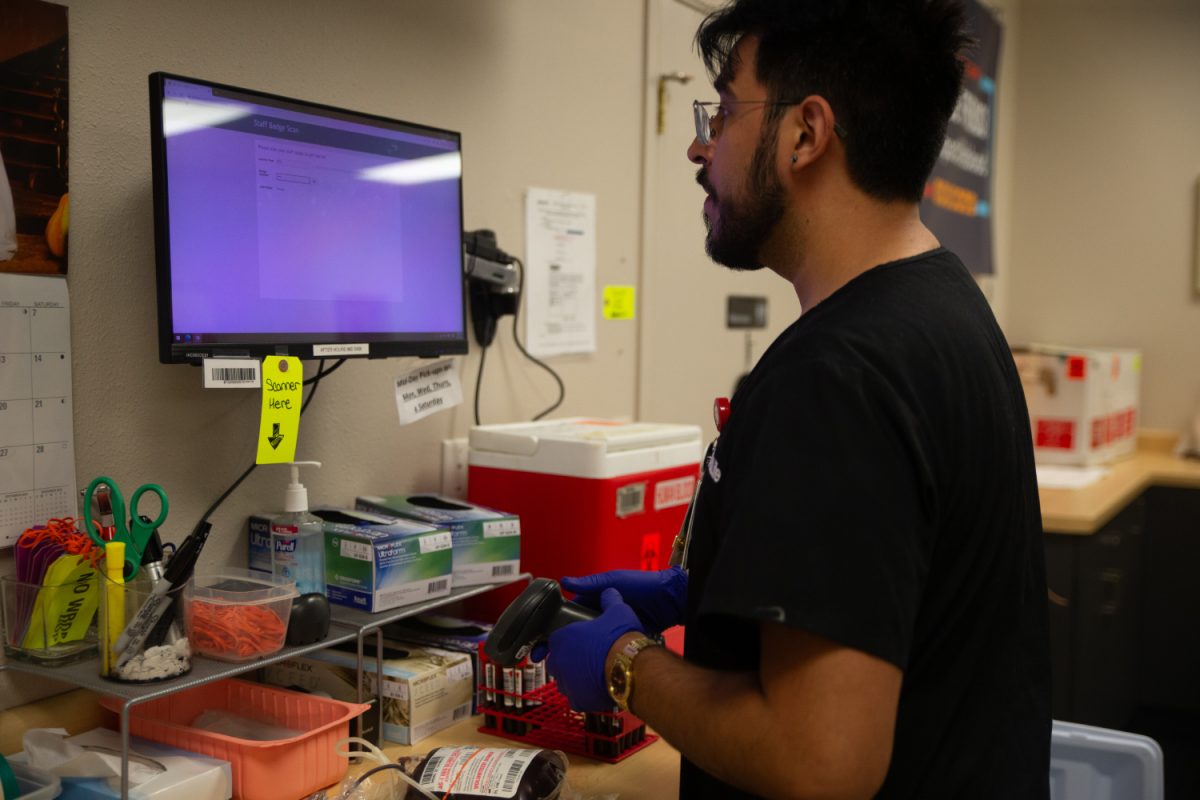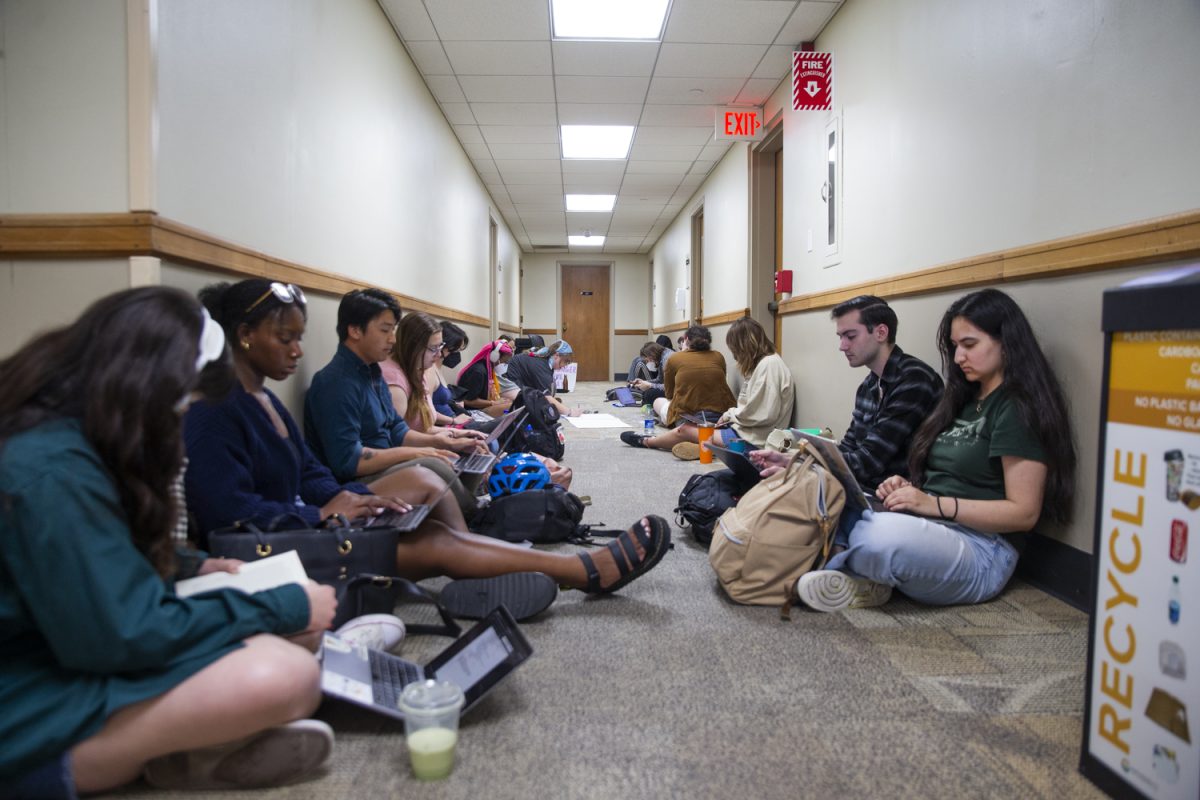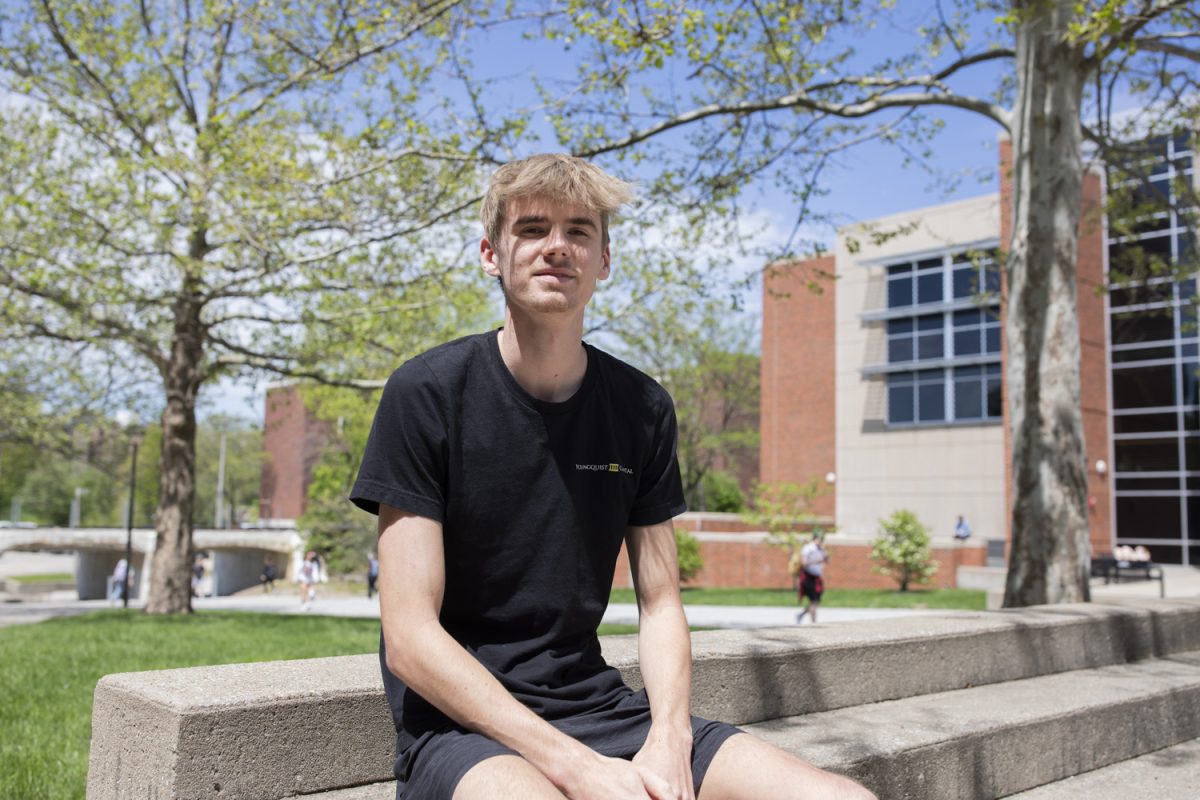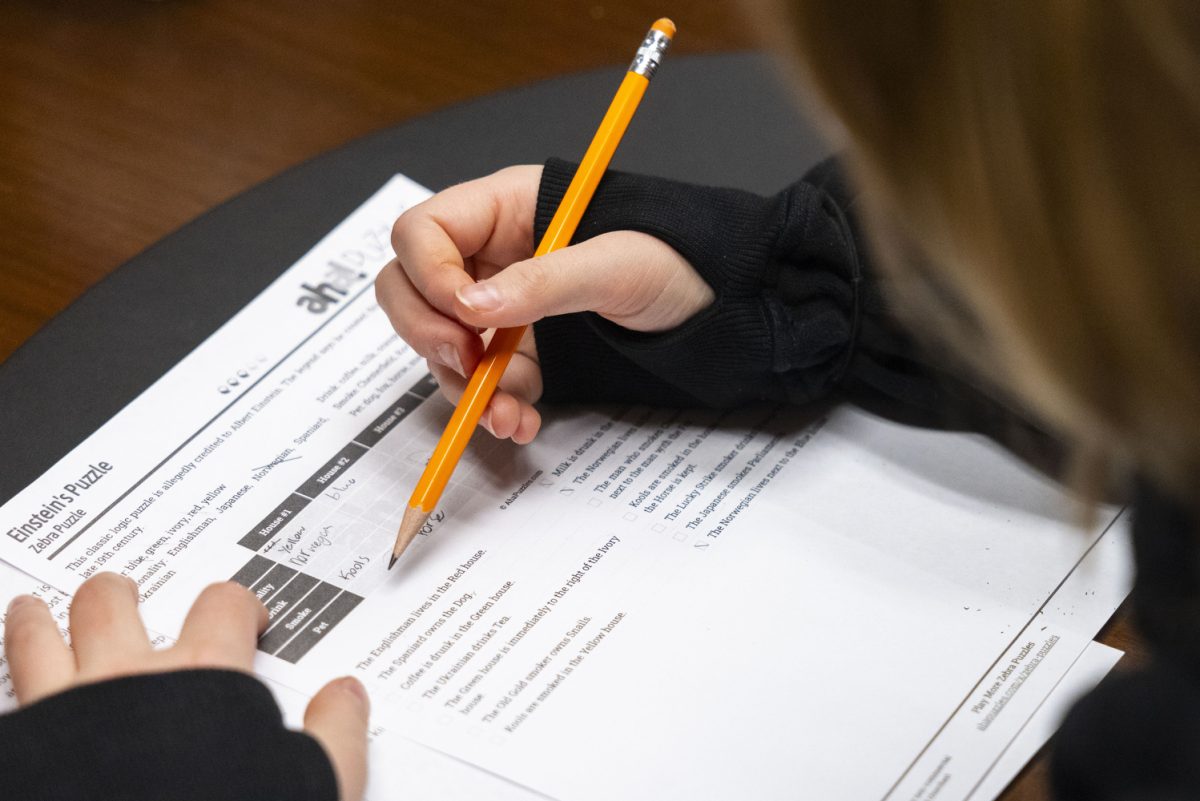Sisters Beleta and Barbara Brewer from Des Moines died in their 40s from sickle cell disease in 2013 after spending most of their lives in the hospital because of multiple surgeries.
Their younger sister, Betrina Brewer, said they lived a full life. Since their deaths, their family has held sickle cell blood drives since 2018 at the nonprofit blood center ImpactLife in Coralville.
Many people who live with the disease are often unaware that they possess the sickle cell trait, let alone have the disease. Sickle cell disease is a genetic disease of the blood in which both parents carry the sickle cell trait.
Beleta Brewer was born in 1972, a time in which there was very little research on sickle cell disease. Barbara was born soon after in 1973, and the two inherited the trait and contracted the disease.
Shyneeta Rush, a cousin to the Brewer sisters and an ImpactLife volunteer ImpactLife in Coralville, has organized the blood drives for five years. Rush and her husband began hosting these drives at their church and later at the African American Museum of Iowa in Cedar Rapids.
ImpactLife now holds sickle cell blood drives once or twice a year, Rush said, and collected 12-15 units of blood at the July 2023 drive in Coralville. Territory Manager at ImpactLife Michelle Stebral said during these drives, they typically see about 15-20 people.
Symptoms of sickle cell anemia
Betrina Brewer said both her sisters had sickle cell anemia, which affected their organs, and was “the worst type” of sickle cell disease.
The two women had strokes, heart attacks, ulcers, and joint pain due to their disease.
“I remember how tired and depleted they would be and how severe the pain crisis truly was for them,” Betrina Brewer said.
Stebral explained the differences between a normal red blood cell and a sickle cell. Normal red blood cells are round and move throughout the body, carrying oxygen. Sickle cells, however, are red blood cells that are shaped like a “sickle,” or a crescent-like shape.
Due to this shape, the cells often clump together and do not move throughout the body, causing clots, pain, and sometimes death.
Stebral noted that the disease disproportionately affects the African American community. She said one in three African Americans live with the sickle cell trait.
Though not all carry the trait, African Americans are the most likely to inherit it, as are individuals of Middle Eastern or Latinx descent.
Stebral said the best way to determine donor eligibility is to go to a health care provider or donor center and get tested.
It is possible for individuals to carry the sickle cell trait but not have the disease itself. Those who carry the trait, however, are the best donors for individuals with the disease, as they already carry the antigen in their blood. The antigen helps decrease the sickle cell hemoglobin in the blood.
Receiving blood from someone who matches closely with the patient is important as it will help eliminate any complications, such as the body rejecting the blood, during a transfusion.
Betrina Brewer is an example of this. She and her late sisters had sickle cell disease. Betrina Brewer said she had reproductive issues due to the sickle cell trait, but was still able to have her son.
Betrina Brewer visited multiple pain specialists in her lifetime and has gone to hematologists to help alleviate the pain.
“When I was a teenager, I ended up in the ER due to my low iron that occurs due to sickle cell and I have had to continue to go to physical therapy to build myself back up, “ Betrina Brewer said.
Betrina Brewer said the hardest part about living with the sickle cell trait is that some individuals may exhibit no symptoms whatsoever, which is why it is important to get tested.
“My sisters were very resilient,” Betrina Brewer said. “Doctors told them they weren’t going to live past 5, or past 12, or past 21, and both my sisters lived to be 40 and 41 years old.”
Beleta and Barbara Brewer lived a full life in those 40 years despite seeing the inside of a hospital for the majority of their lives. Both women were songwriters, Betrina Brewer said.
Even though they could not do much physically like play sports, both women were able to write, crotchet, and present their creative sides despite their illness.
“They were beautiful, beautiful girls who were so, so strong and learned to live with the circumstances they were given,” Betrina Brewer said.










